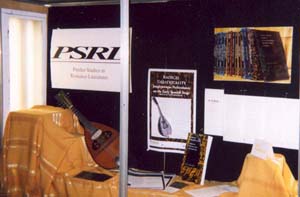Radical Theatricality: Jongleuresque Performance on the Early Spanish Stage
Bruce R. Burningham
Taking as its point of departure the debate over the existence of a medieval Hispanic theatrical tradition, Radical Theatricality argues that the search for extant medieval play scripts depends on a definition of theater more literary than performative. This literary definition—largely established by the myth of Thespis’s “invention” of Western theater in his dialogic interaction with his dithyrambic chorus—pushes aside evidence of Spain’s medieval performance traditions because this evidence is considered either intangible or “un-dramatic” (that is, monologic). The emphasis on written, dialogue-based texts has left researchers unprepared to deal with the clowns, mimes, acrobats, jugglers, troubadours, and singers that, in one way or another, have continued to perform their arts from well before the fall of Rome up through the present day. By focusing on the dialogic relationship that exists in performance between performer and spectator—rather than on the kind of literary dialogue between characters that is traditionally associated with drama—Radical Theatricality diachronically examines the performative poetics of the jongleuresque tradition (broadly defined to encompass such disparate performers as ancient Greek rhapsodes and contemporary Nobel Laureate Dario Fo) and synchronically traces that tradition’s performative impact on the Spanish theater of the sixteenth and seventeenth centuries.
“Significant and innovative, the study argues for the fundamental importance of performance in understanding the historical development of Spanish theater. It thus addresses (and offers a key to exploring) a phenomenon that has puzzled historians for generations: the ostensibly spontaneous birth of early modern peninsular theater.” John J. Allen, author of The Reconstruction of a Spanish Golden Age Playhouse
"Without records to indicate the hierarchy (or even existence) of key performance factors, we are left to speculate which traditions, trends, or individuals held greatest sway, which marked the turning points that led to the creation of a national Spanish theater. Bruce Burningham sets out to do just that in a perceptive and well reasoned consideration of the essence of performance: the relationship—dialogic in principle—that exists between performer and spectator."—Susan Paun de García, Comedia Performance 5.1 (2008): 223-26.
"Accepting the importance of this radical theatricality helps exlain the apparently sudden emergence and originality of the comedia despite the meager medieval Iberian textual tradition of liturtical drama. Although the history of Spanish drama is central to Burningham's inquiry, students of other European theatrical traditions will find much food for thought as well in this wide-ranging long view of performance art."—Margaret R. Greer, Renaissance Quarterly 60.4 (2007): 1340-42.
"Bruce Burningham ofrece un enfoque sugerente y original que permite analizar la práctica teatral en un ámbito en el que se entrecruzan la teoría literaria con la historia del teatro y los estudios performativos. De esta simbiosis ha fermentado un provocador estudio que ofrece una visión radical y personal sobre aspectos dramáticos centrales de gran progenie crítica." —Oscar Martín, Iberoamericana 8.29 (2008): 223-25.
"This comprehensive and innovative study approaches the performative poetics of the jongleuresque tradition by examining the dialogic interaction between performer and spectator and how that intrinisic relationship impacted the development of Spanish theater. This step is a bold one.... Radical Theatricality is a refreshing approach to the Western dramatic theory, and is particularly 'radical' in its innovative posture towards understanding the development of early modern Spanish theater."—Zane U. Segle, Hispania 91 (Dec. 2008): 816-17.
For further reviews, see:
The Chronicle of Higher Education 26 Jan. 2007.
Reference and Research Book News May 2007.
Bruce R. Burningham is Associate Professor of Spanish and Comparative
Literature at Illinois State University, where he specializes in
medieval and early modern Spanish and Latin American literature,
Hispanic drama, and performance theory. He is the author of Tilting
Cervantes: Baroque Reflections on Postmodern Culture (Nashville:
Vanderbilt UP, 2008). He is a recipient of an Andrew W. Mellon
Postdoctoral Fellowship and a National Endowment for the Humanities
grant.
ISBN-10: 1-55753-441-1; ISBN-13: 978-1-55753-441-5
2007. Vol. 39. xii, 260 pp. Paper $43.95

Display Case in Stanley Coulter Hall, January 2007. Mandolin courtesy of Paul Dixon.
For further information about this book, contact the production editor at psrl@purdue.edu